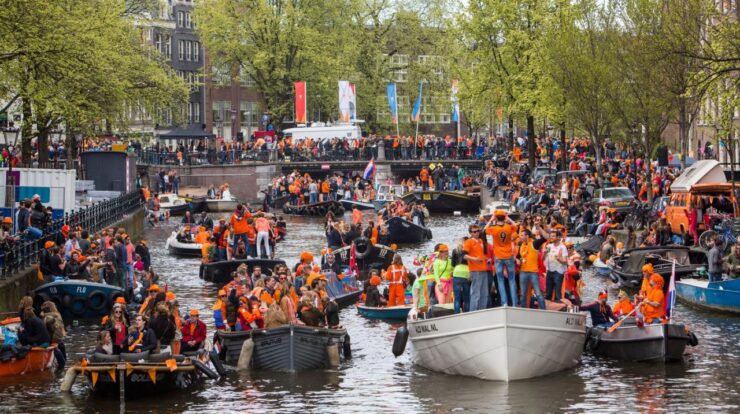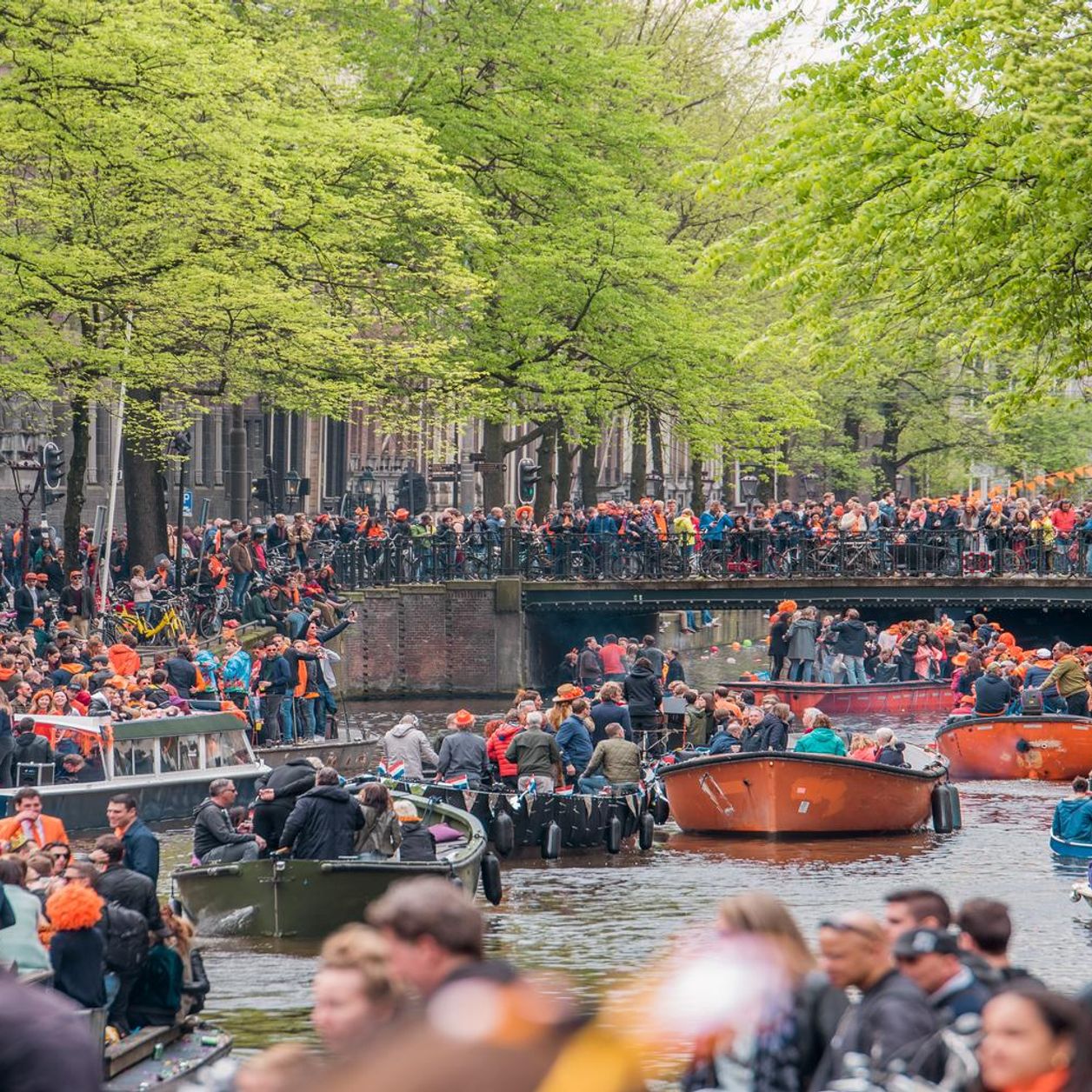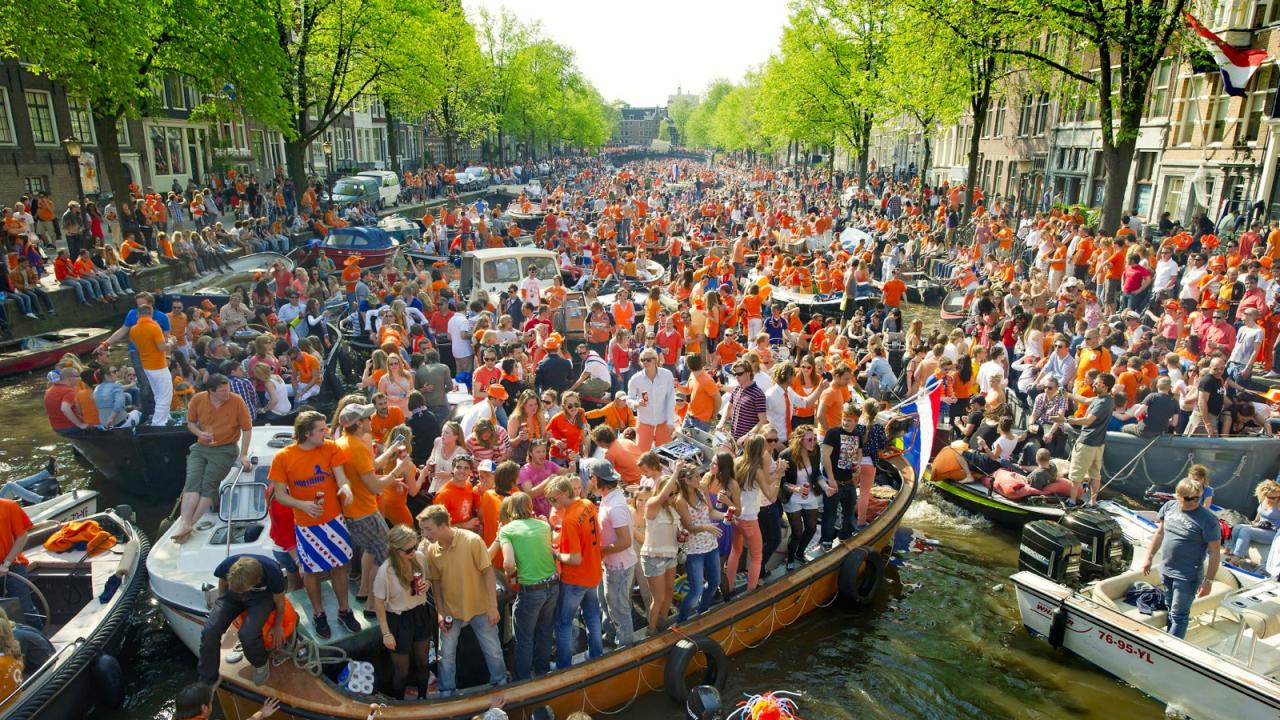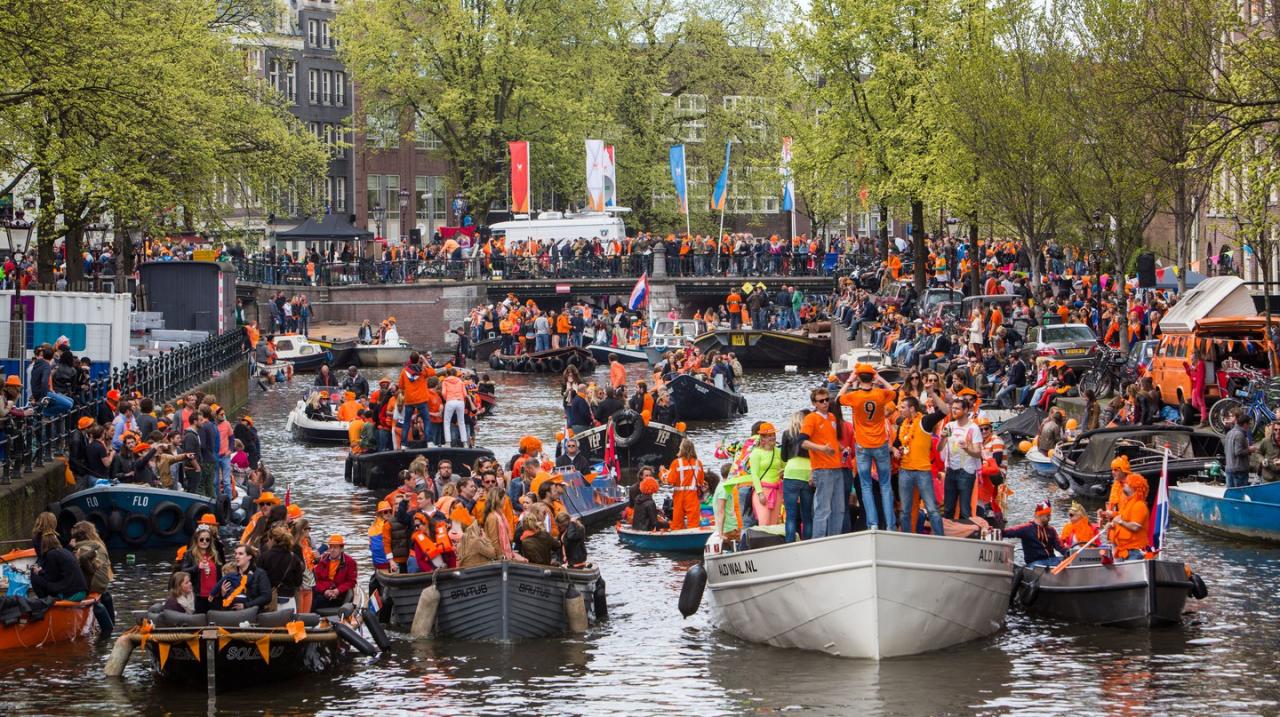
King’s Day Netherlands, a day of national pride and merriments, is a vibrant celebration that has captivated the hearts of Dutch citizens and visitors alike. Steeped in history and tradition, this annual event is a testament to the country’s rich cultural heritage and the deep bond between the monarchy and its people.
On this special day, the Netherlands transforms into a sea of orange, as locals and tourists don their finest attire and take to the streets for a day filled with parades, music, games, and much more. The festivities offer a unique glimpse into Dutch culture, showcasing the country’s warm hospitality, vibrant spirit, and unwavering national pride.
King’s Day in the Netherlands: A Royal Celebration
King’s Day is an annual national holiday in the Netherlands celebrated on April 27th. It commemorates the birth of King Willem-Alexander and is a day of festivities and celebrations throughout the country.
History and Origin of King’s Day in the Netherlands

The origins of King’s Day date back to 1885 when it was known as Queen’s Day to celebrate the birthday of Queen Wilhelmina. After Queen Juliana ascended to the throne in 1949, the holiday was renamed Queen’s Day and celebrated on her birthday, April 30th.
In 2013, when King Willem-Alexander became the first male monarch in over a century, the holiday was renamed King’s Day and moved to April 27th, his birthday.
Celebrations and Festivities, King’s day netherlands
King’s Day is a vibrant and lively celebration with a variety of activities and events taking place throughout the Netherlands.
- Orange Attire:The color orange is synonymous with the Dutch royal family, and on King’s Day, it is everywhere. People dress up in orange clothing, hats, and accessories to show their support for the monarchy.
- Flea Markets:One of the most popular traditions on King’s Day is the vrijmarkt (free market), where people set up stalls to sell their unwanted items. These markets can be found in every town and city, offering a wide range of goods from antiques to clothing.
- Concerts and Events:Many cities and towns host concerts, parades, and other events on King’s Day. These events feature live music, street performers, and family-friendly activities.
- Food and Drinks:King’s Day is also a time for indulgence, with many traditional Dutch foods and drinks being consumed. Popular dishes include tompouce (a puff pastry filled with cream), oranje bitter (an orange liqueur), and stroopwafels (thin waffles filled with caramel syrup).
Economic and Social Impact: King’s Day Netherlands

King’s Day has a significant economic impact on the Netherlands, with businesses reporting increased sales and tourism revenue.
Socially, the event fosters community spirit and national pride. It is a day when people come together to celebrate their shared heritage and culture.
Cultural Significance and Symbolism

King’s Day is deeply rooted in Dutch culture and tradition. The color orange represents the royal family and is a symbol of unity and national identity.
The vrijmarkt symbolizes the Dutch value of thrift and resourcefulness. It is a day when people can declutter their homes and make some extra money.
Historical Figures and Personalities
- Queen Wilhelmina:Queen Wilhelmina reigned from 1890 to 1948 and was the first monarch to have her birthday celebrated as Queen’s Day.
- Queen Juliana:Queen Juliana reigned from 1948 to 1980 and moved Queen’s Day to her birthday, April 30th.
- King Willem-Alexander:King Willem-Alexander became the first male monarch in over a century in 2013 and renamed the holiday King’s Day.
Global Recognition and Influence
King’s Day has gained international recognition and is celebrated in various countries around the world.
In Canada, the city of Orangeville hosts an annual King’s Day festival. In the United States, the city of Holland, Michigan, also celebrates King’s Day with a parade and other events.
Sustainability and Environmental Considerations
In recent years, there has been a growing focus on reducing the environmental impact of King’s Day celebrations.
Initiatives such as encouraging the use of reusable cups and plates, promoting waste reduction, and recycling efforts are being implemented to make the event more sustainable.
End of Discussion
King’s Day Netherlands is more than just a celebration; it is a symbol of unity, community, and the enduring spirit of the Dutch people. Through its colorful traditions and heartfelt revelry, this annual event continues to captivate hearts and minds, leaving a lasting impression on all who experience its magic.
FAQ Corner
When is King’s Day celebrated in the Netherlands?
King’s Day is celebrated annually on April 27th, the birthday of King Willem-Alexander.
What is the significance of the color orange during King’s Day?
Orange is the national color of the Netherlands and has been associated with the Dutch royal family for centuries. It symbolizes unity, patriotism, and the House of Orange-Nassau.
What are some of the traditional activities associated with King’s Day?
Traditional activities include flea markets, street parties, parades, music performances, and the wearing of orange clothing and accessories.





